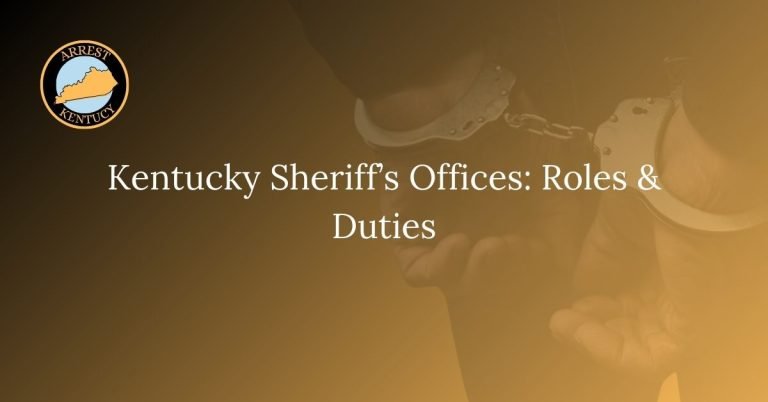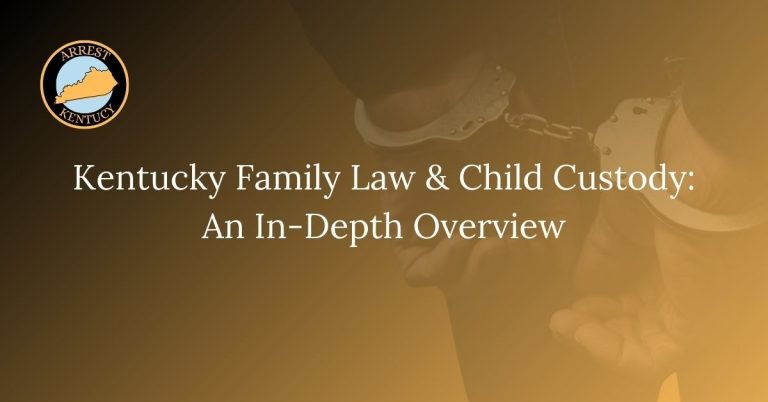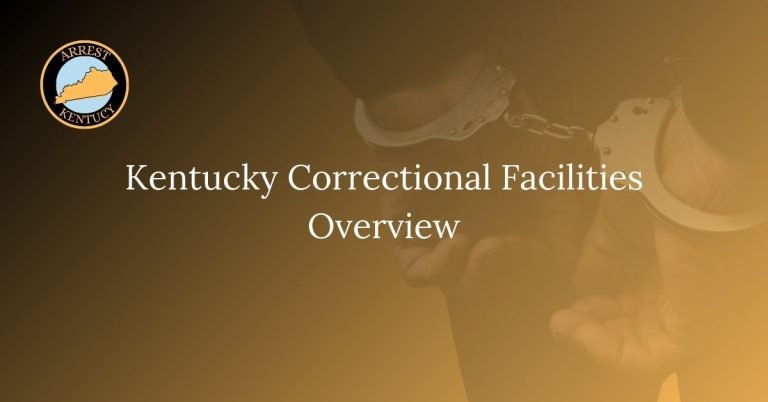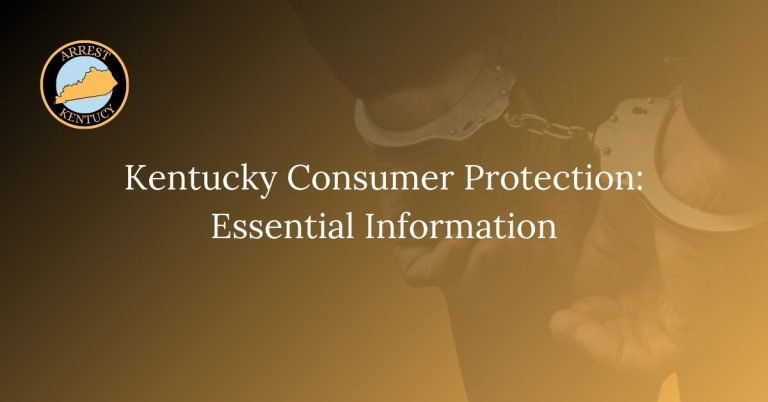Clearing Your Record in Kentucky
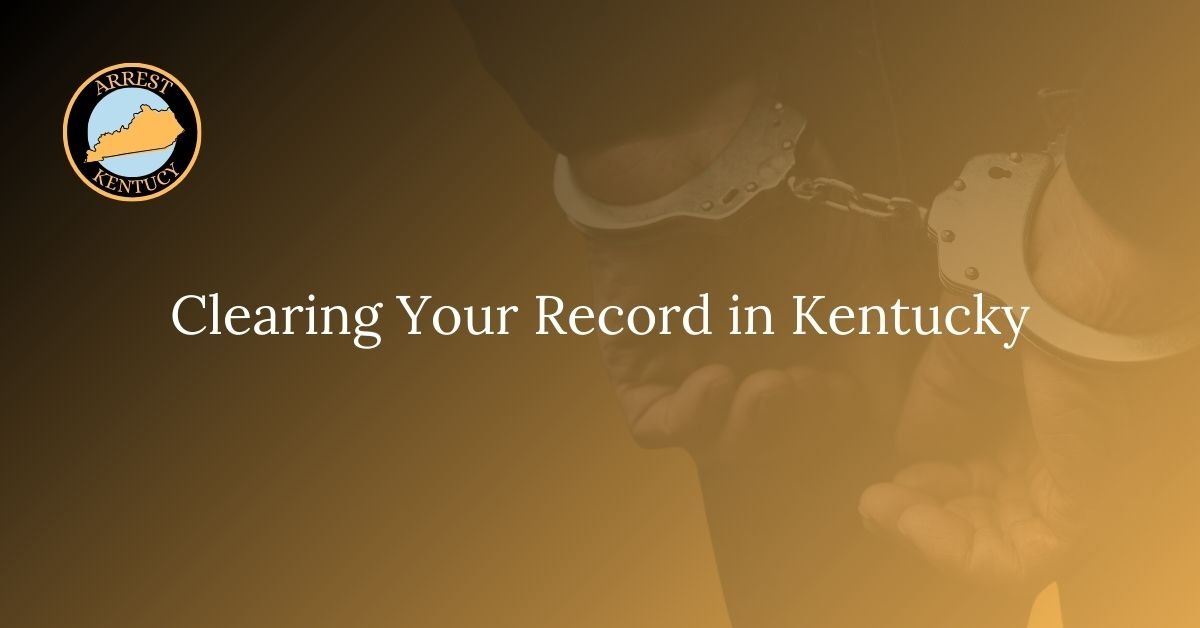
Navigating the aftermath of a criminal conviction can be challenging, with lasting impacts on employment opportunities, housing options, and personal reputation. Kentucky offers legal mechanisms such as expungement and record sealing to help individuals move past their criminal history and start anew. These processes provide pathways to clear or limit the visibility of criminal records, offering a chance to rebuild one’s life without the constraints of past offenses.
This comprehensive guide will explore the nuances of expungement and record sealing in Kentucky. It will cover eligibility requirements, the application process, and the benefits of each option, helping individuals understand how these legal tools can aid in overcoming past mistakes and improving future prospects. By examining these processes in detail, you will gain valuable insights into how to effectively clear or seal a criminal record and achieve a fresh start.
Expungement Explained
Expungement is a legal procedure that completely removes a criminal record from public access, effectively erasing it from existence in public databases. This process provides individuals with a clean slate by making it appear as though the criminal offense never occurred. Unlike a pardon, which only offers forgiveness without altering the record, expungement eliminates the record from public view entirely. This means that after an expungement, individuals are legally allowed to state that they have never been convicted of the expunged offense, which can significantly impact personal and professional opportunities. Expungement is especially beneficial for those seeking to start anew without the shadow of past offenses influencing their future.
Eligibility for Expungement in Kentucky
In Kentucky, eligibility for expungement depends on the nature of the offense and the individual’s criminal history. Generally, misdemeanors and certain low-level felonies are eligible for expungement, provided that specific conditions are met. For instance, individuals must often wait a certain period after the completion of their sentence or diversion program before applying. However, serious offenses such as sex crimes and violent felonies are typically excluded from expungement eligibility. The waiting period before applying varies based on the offense’s severity and the individual’s criminal background. Understanding these criteria is essential for determining whether one qualifies for expungement and for navigating the application process effectively.
The Expungement Application Process
Applying for expungement involves several crucial steps. Initially, individuals must file a petition with the court, which requires detailed information about their criminal record and any relevant documents. This process includes gathering records, filling out forms accurately, and attending court hearings as needed. The importance of correctly completing each step cannot be overstated, as errors or omissions can delay the process or result in denial. Additionally, individuals must demonstrate that they have met all eligibility requirements, including any waiting periods. Successfully navigating this process often requires thorough preparation and attention to detail to ensure that all legal requirements are met.
What is Record Sealing?
Record sealing is a legal process that restricts access to a criminal record, making it invisible to the general public while remaining accessible to certain entities such as law enforcement and judicial authorities. Unlike expungement, which completely erases the record from public databases, sealing a record only limits its visibility. This means that while the general public cannot view the sealed record, law enforcement and specific agencies can still access it for certain purposes. Record sealing offers a degree of privacy and protection but does not provide the same level of complete removal as expungement. Understanding the implications of record sealing helps individuals make informed decisions about the best approach for managing their criminal history.
Differences Between Expungement and Record Sealing
The primary distinction between expungement and record sealing lies in the extent of record removal. Expungement provides a complete eradication of the criminal record from public view, effectively allowing individuals to state that the offense never occurred. On the other hand, record sealing only restricts access, keeping the record hidden from public view while still accessible to specific entities like law enforcement. This difference impacts various aspects of life, including employment opportunities, housing applications, and the restoration of civil rights. Expungement generally offers a greater degree of privacy and potential benefits compared to record sealing, which still maintains a degree of visibility for certain legal and administrative purposes.
Advantages of Expungement and Record Sealing
Both expungement and record sealing offer substantial benefits to individuals with criminal records. Expungement provides the advantage of complete record removal, which can significantly enhance job prospects, improve personal reputation, and offer a fresh start. It allows individuals to move forward without the burden of past offenses influencing their opportunities. Record sealing, while not as comprehensive as expungement, still provides valuable privacy by limiting public access to the criminal record. This can help individuals in various aspects of life, such as applying for jobs or housing, by reducing the impact of their criminal history. Overall, both processes contribute to better personal and professional outcomes by addressing the challenges associated with a criminal record.
Limitations and Exceptions
Despite the benefits, both expungement and record sealing have limitations and exceptions. Certain offenses, such as violent crimes and sex offenses, are generally not eligible for these processes. Additionally, individuals who have previously undergone expungement may face restrictions or complications if they encounter new legal issues. Understanding these limitations is crucial for managing expectations and navigating the legal landscape effectively. It is important to be aware of the specific eligibility criteria and restrictions that apply to each case to make informed decisions about pursuing expungement or record sealing.
Getting Started with Expungement or Record Sealing
To begin the process of expungement or record sealing, individuals must undertake several important steps. This includes seeking legal counsel to understand the requirements and procedures, preparing the necessary documentation, and following the legal process meticulously. Proper preparation is essential for successfully navigating the complexities of the legal system and ensuring that all requirements are met. Legal advice can provide valuable guidance and help individuals avoid common pitfalls, making the process more manageable and increasing the likelihood of a successful outcome.
The Role of an Attorney
Engaging an experienced attorney can be highly beneficial when pursuing expungement or record sealing. An attorney can offer expert guidance on the legal requirements, assist in preparing and filing the necessary documents, and represent the individual in court if needed. Legal representation can also help manage the costs associated with the process and ensure that all aspects of the application are handled correctly. By working with a knowledgeable attorney, individuals can navigate the expungement or record-sealing process more efficiently and increase their chances of achieving a favorable result.
Frequently Asked Questions
For insights on clearing your record in Kentucky, explore our comprehensive FAQs section to find answers to common questions and guidance on the process.
What is the difference between expungement and record sealing in Kentucky?
Expungement completely removes a criminal record from public access, effectively erasing it from existence. This means that the offense is considered as if it never happened, and individuals can legally state they have no conviction for the expunged offense. In contrast, record sealing restricts access to the record, making it invisible to the public but still accessible to law enforcement and certain other agencies. Record sealing does not erase the record but provides a degree of privacy by limiting its visibility.
Who qualifies for expungement in Kentucky?
Eligibility for expungement in Kentucky depends on the offense type and the individual’s criminal history. Generally, those with misdemeanor convictions or certain low-level felonies, particularly if they have completed a diversion program, may qualify. However, serious offenses like sex crimes and violent felonies are typically excluded from expungement eligibility. The specific criteria and waiting periods must be met to qualify for this process.
Can multiple offenses be expunged?
Yes, it is possible to expunge multiple eligible offenses from a criminal record in Kentucky. Each offense must meet the eligibility criteria, and there are specific waiting periods and conditions for each case. Consulting with an attorney is essential to understand the requirements and to determine how each offense can be addressed in the expungement process.
What is the waiting period for expungement?
The waiting period for expungement in Kentucky varies based on the offense and whether a diversion program was completed. Typically, for misdemeanors, the waiting period ranges from 1 to 5 years, and for felonies, it ranges from 5 to 10 years. Some charges may have longer waiting periods depending on the specifics of the case. Understanding these timeframes is crucial for planning and preparing for the expungement application.
Can expunged records be used in future cases?
Generally, expunged records cannot be used as evidence in future criminal cases. Once a record is expunged, individuals can legally state that they have not been convicted of the expunged offense. However, there are some exceptions, such as for certain professional licensing requirements or firearm purchase applications, where expunged records might still be considered.
Can record sealing be pursued if expungement is not an option?
Yes, if an individual is not eligible for expungement, record sealing can be an alternative option. Record sealing limits public access to the criminal record but does not remove it entirely. While the general public cannot view the sealed record, law enforcement and specific agencies can still access it. This provides a degree of privacy and protection, although it does not offer the complete removal of the record that expungement does.


